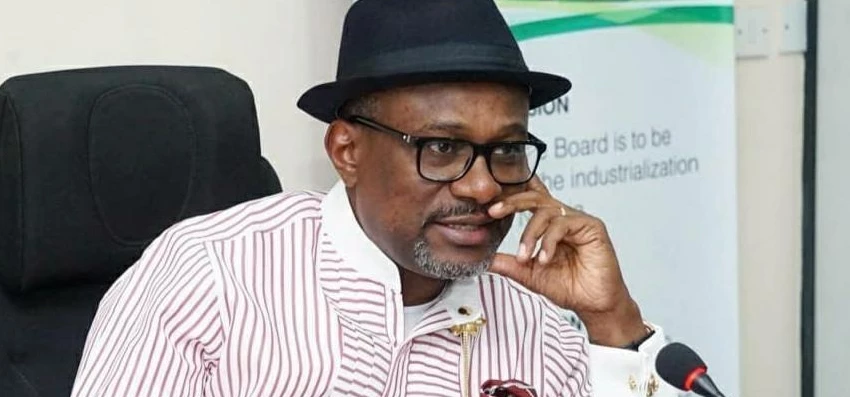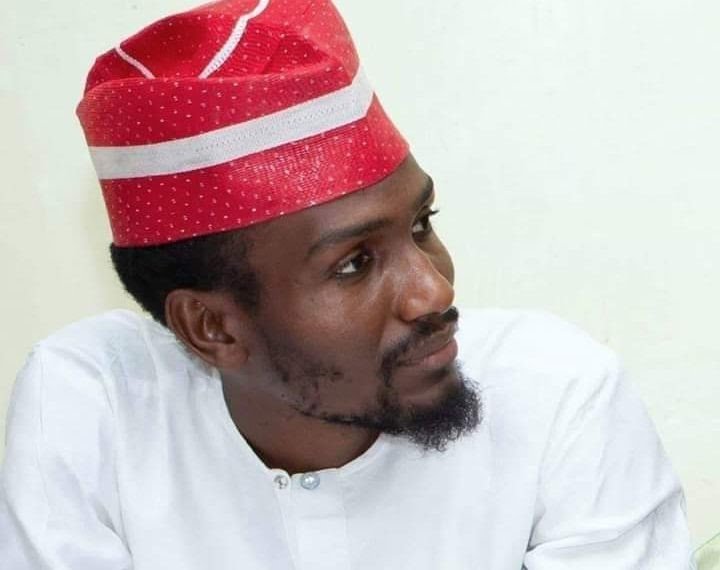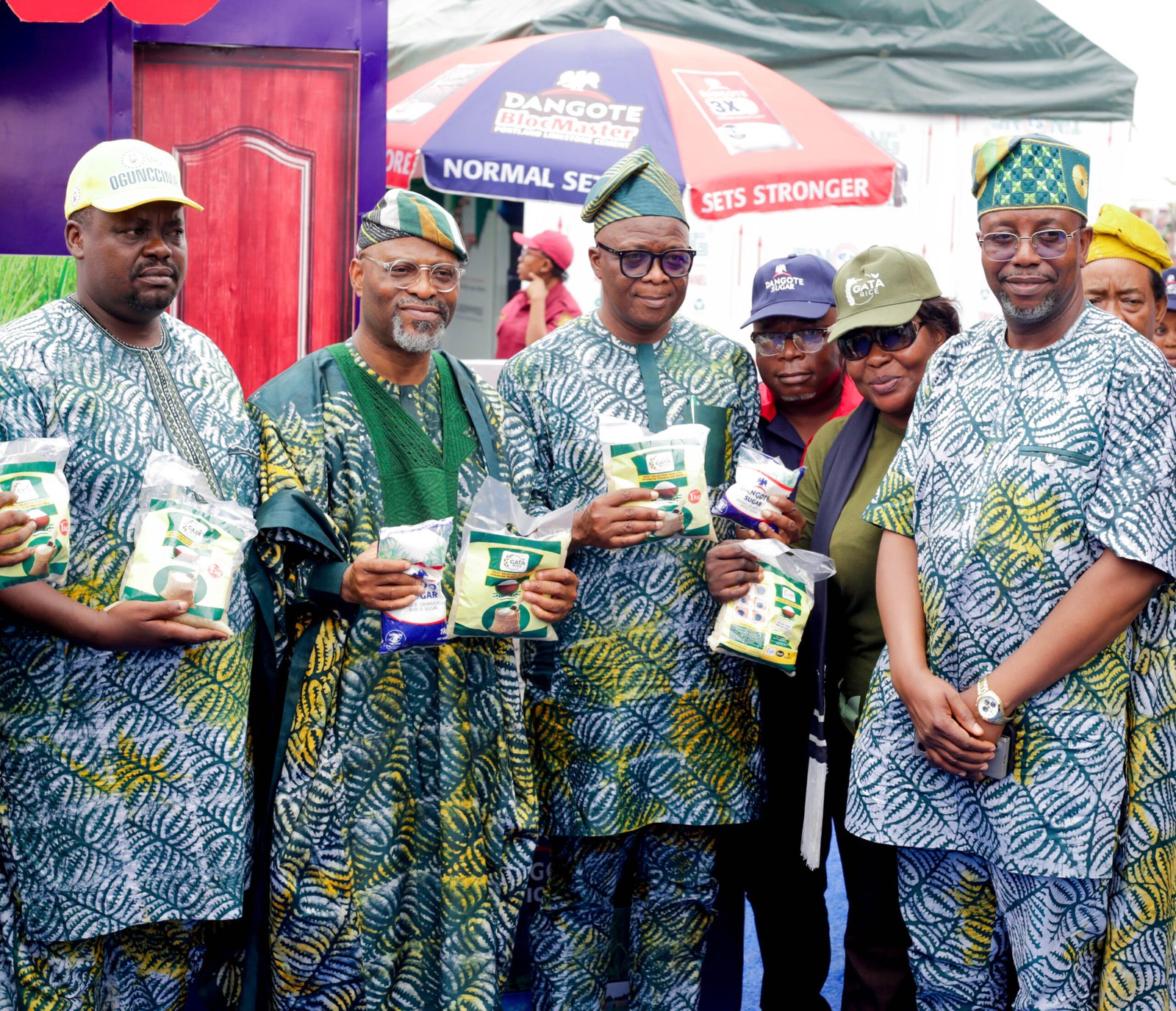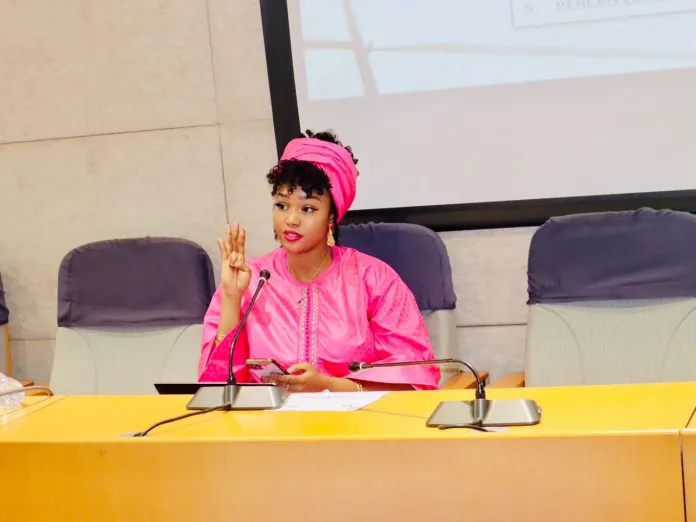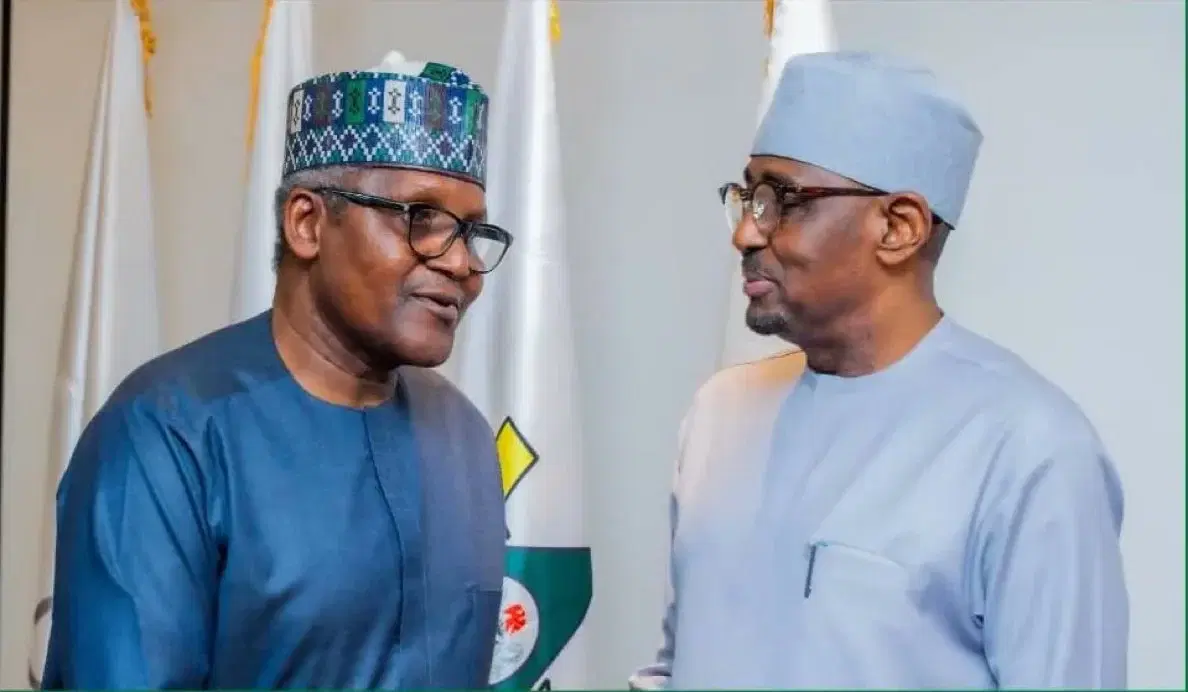How to Invest, Deepen Local Content in Nigeria’s Oil & Gas Industry
By Simbi Wabote
Ladies and Gentlemen, you are all welcome to the 4th Edition of the Nigerian Oil & Gas Opportunity Fair (NOGOF), which is a biennial event.
I am excited to be here with you physically again in our own conference centre especially as the COVID-19 pandemic prevented us from congregating at the last edition which was held virtually.
The theme of this year’s NOGOF is “Oil & Gas Industry – Catalyst and Fuel for the Industrialization of Nigeria”.
This theme reflects the pivotal role that the oil and gas industry is expected to play in driving the economic growth and development of Nigeria.
Of late, this role expected of the oil and gas industry has been dwindling due to missed opportunities as a result of policy inconsistencies, deferred decisions, and investments apathy.
Just to set the context, I would like to draw your attention to the nation’s GDP growth rate between the years 2021 to 2022 as released by the National Bureau for Statistics (NBS).
Over this period, the growth of the nation’s GDP has been marginal, but the reality is that we need to drive the growth rate to double digits for us to achieve the level of economic advancement and development that we desire.
The NBS report noted that the total annual contribution of oil to aggregate GDP in 2022 was 5.67% compared to 7.24% in 2021.
The oil sector has steadily dropped behind Agriculture, Trade, Telecommunications/ICT, and Real Estate in terms of sectors that contributed the most to Nigeria’s GDP.
These are signs of a dying sector, and we must all join hands to stop the decline so that we can return oil and gas contribution to GDP to double digits levels similar to other major oil producing countries.
For instance, Norway has doubled its GDP in the last 2 years from $171.2 Billion to $367 Billion with the oil and gas sector contributing about 20% followed by their hydropower.
Although Norway is in a different clime from Nigeria, we share some similarities when we look at the huge deposits of natural resources coupled with a skilled labour force and the adoption of new technology that made Norway a prosperous country during the twentieth and twenty-first centuries.
It is my belief that the oil and gas sector can serve as the catalyst that will enable us to achieve the desired double-digit GDP growth rate if we are bold and disruptive in our strategy.
One probable means through which double-digit GDP growth can be achieved is by harnessing the array of opportunities that exists in various categories enabled by the oil and gas industry.
In the aspect of creating opportunities, the NOGICD Act sets the minimum targets in 278 services across oil and gas value chain in the Schedule.
I have always referred to the Schedule of the NOGICD Act as a compendium of opportunities waiting for any serious investor to tap into. The schedule lists out the various activities in the oil and gas industry and sets out the desired level of Nigerian content for which any discerning investor can position himself or herself for patronage.
Beyond the core oil and gas activities related to Exploration and Production, there are several related activities enable by our industry such as security, insurance, medicals, ICT, legal services, aviation, catering, and several others.
We have therefore designed NOGOF with the following objectives in mind:
a. Showcase opportunities in the Upstream, Midstream and Downstream sectors of the Petroleum Industry
b. Provide opportunity for foreign and local investors to build synergies in the Nigerian oil and gas industry.
c. Provide Nigerian companies and prospective investors an opportunity to showcase their capabilities.
d. Provide stakeholders with information on upcoming projects to enable Nigerian companies/manufacturers tailor their business development strategies.
e. Identify high impact activities with potential for in-country value addition with a 5-year outlook to deepen the practice of Nigerian Content.
In view of these objectives, let me share five (5) broad categories of opportunities which I would like to highlight in this welcome address as we prepare to go into the various opportunity and technical sessions today and tomorrow.
These categories are:
· Policy Driven Opportunities
· People Driven Opportunities
· Fund Driven Opportunities
· Infrastructure Driven Opportunities and
· Situational Opportunities
Opportunities driven by policies, guidelines, regulations, and statutes are attractive to investors as there is clarity on the framework governing their business endeavours.
Several policies have been formulated and implemented by the Government in their quest to stimulate economic growth and development.
For instance, in 2021, Mr President declared the Decade of Gas which among others seek to stimulate the development and utilization of gas resources for increased domestic utilization and export towards generating more revenue for the nation.
Other policies such as the automotive gas policy advocates for the use of CNG as an alternative fuel for vehicles and this has also created a vista of opportunities in the supply and installation of conversion kits in vehicles to enable it use of CNG.
Several industries have also installed kits to enable their power generating plants to utilize CNG and in some cases LNG instead of diesel to manage cost.
These policy initiatives have led to creation of several businesses and a surge in local utilisation of gas. For example, the annual consumption of LPG increased from 360,000tonnes in 2015 to 1.4million tonnes in 2022.
While this growth is commendable, it is instructive to note that about half of the local LPG requirement is imported. In addition, the consumption level is still far below the 4million tonnes consumption by the year 2025 as targeted by the National Gas Expansion Program (NGEP).
These gaps in volumes and consumption spread present opportunities in local processing, storage depots, trucking, cylinders manufacturing, distribution pipelines, conversion kits, and many other opportunities.
The Nigerian Gas Flare Commercialisation Programme (NGFCP) is another policy that is aimed at promoting the development and utilization of gas. It also focuses on reducing greenhouse gas emissions in line with global efforts which are aimed at addressing climate change.
The key thing to note here is that every policy, regulation, or statute holds an array of opportunities that can be harnessed and utilized to achieve significant benefits.
The Petroleum Industry Act (PIA) 2021, is one of the most audacious attempts that have been made to overhaul our petroleum sector.
The Act has now provided investors with more clarity on the business environment, and it is expected that the 2-year-old PIA will soon start to yield the desired results.
The NOGICD Act (2010) provides opportunity to investors by stating in Sections 3 and 12 of the Act that First Consideration shall be given to Nigerian goods and services by operators and their contractors in the implementation of their projects.
The African Continental Free Trade Area (AfCFTA) is another broad-based policy that provides opportunities for the oil and gas industry in Nigeria.
The AfCFTA creates the single largest Free Trade market in the world for goods and services in Africa, and this has numerous opportunities including market, sources of raw materials, export of manpower, etc.
I also want to bring to your attention that these policies, guidelines, regulations, and statutes require Subject Matter Experts for their interpretation, application, and advocacy. I have had cause to admonish Nigerian Content Managers that they cannot just rely on relationships to secure approvals and authorisations.
The practice of Nigerian Content and the understanding of the regulatory requirements in the Nigerian oil and gas industry in general, require a professional touch. There are huge opportunities for individuals and businesses willing develop the skill sets required to offer regulatory compliance support services to operators and service companies.
The importance of competent personnel in any organisation cannot be over-emphasised. Having the right framework and qualified people equipped with the right technical expertise and dedication is essential for effective project delivery and nation building.
From inception, the Board has always been an advocate of Human Capital Development.
Through our Capacity Building Directorate, we have funded and engaged in numerous training activities across the country.
Our Nigerian Oil and Gas Industry Content Joint Qualifications System (NOGIC JQS) provides a platform for various stakeholders to participate in the different types of training offered by our partners in the oil and gas industry.
The NCDMB has been a champion for providing opportunities for youths and women in the oil and gas industry and its linkage sectors through valued training.
This training provides youths – both male and female – with the requisite skill set necessary for them to participate in opportunities across different industries, especially in this technology-driven age.
We have provided train-the-trainers programs across the country, delivered over 13 million man-hours in On-the-Job training covering sea-time for marine cadets, non-destructive testing, equipping youths in new skill sets such as GSM repair, solar power installation, and provision of entrepreneurial exposure that will ensure sustainability.
With almost one million graduates, technicians, and artisans being produced every year, there is a huge need to provide Human Capacity Development programs to develop our youths and keep them engaged in productive activities.
Regulation No.1 of our gazetted Ministerial Regulations provides for Training in the Nigerian Oil and Gas Industry. It provides for the minimum standards, facilities, personnel and technology for training in the oil and gas industry and modalities for involving operators and service providers as partners in training and development.
Funding also plays a critical role in realizing the opportunities within the oil and gas industry.
We have introduced and widened the options for accessing interventions even further with our $300 million Nigerian Content Intervention Fund with BOI, our $50 million Nigerian Content R&D Fund, and our $50 million NOGaPS Manufacturing Fund.
Over 70 companies have so far benefited from the intervention funds for asset acquisition, manufacturing, loan refinancing, and project financing.
The forensic audit of remittances into the Nigerian Content Development Fund also opened up opportunities for 25 audit companies engaged to check the books of about 150 companies.
Let me state here that other sources of funds exist apart from the Nigerian Content Intervention Fund such as with the NDDC, NIMASA, BOI, African Development Bank (AFDB) and AFREXIM Bank.
The National Agency for Science and Engineering Infrastructure (NASENI) has Statutory funding of 1% of Federation Account and 0.25% Levy on profits of certain categories of commercial companies. These represent very good source of funds and we have commenced discussions with NASENI on areas of collaboration.
There is no gainsaying that the desired level of opportunities cannot be harnessed by Nigerian companies without the domiciliation of critical infrastructure.
The focus of the outgoing administration on railways, roads, bridges, airports, defence, power, and solar energy parks provides opportunities not only in the development of these infrastructures but also in the subsequent maintenance which is very critical.
I am delighted that some of the capacities and capabilities developed in the oil and gas industry have been deployed to deliver these infrastructures. I implore other service companies not to limit their focus only on opportunities within the oil and gas industry but extend it to other sectors of the economy.
From where I seat, I am aware of the struggle of some agencies of government to deliver capital projects contained in their approved budgets due to lack of competent contractors.
On our part, we continue to put in place some building blocks to support value retention in-country.
The Nigerian Oil and Gas Park Scheme (NOGaPS) at Odukpani in Cross River state and the one at Emeyal-1 in Bayelsa state are both at advanced stages of completion.
The industrial parks provide opportunities in the areas of manufacturing, logistics, security, facilities management, training, catering services, occupational health services, and many others.
With the completion and commissioning of the Nigerian Content Tower about three years ago, we have commenced the construction of the 200-room Conference Hotel next door to complement the NCDMB Conference Center wherein we are seated.
Apart from the opportunities provided during the ongoing construction of the Conference Hotel, we believe these facilities will requires catering, logistics, cleaning, maintenance, and others services when fully operational.
The Oloibiri Museum and Research Centre is another complementary infrastructure that will enhance Conference Tourism in this part of the country.
On behalf of our partners, PTDF, SPDC, and Bayelsa State Government, let me use this opportunity to once again express our gratitude to His Excellency, President Muhammadu Buhari and the Federal Executive Council for approving the Oloibiri Museum project.
Lastly on the infrastructure driven opportunities, let me highlight that we have also commenced the front-end design of the Brass Island Shipyard Project.
We see opportunities on the need to put in place a dockyard of sufficient size to handle repair and maintenance requirements of marine vessels of various sizes including container ships, oil tankers, and LNG carriers.
The Brass Island Shipyard project entails the development of 310m graving dock, 650m fitting out quay for LNG carriers, oil tankers, and cargo ships of up to 150,000DWT (Deadweight Tonnage).
In a year, the shipyard will enable in-country maintenance and repairs of seven LNG vessels or oil tankers, 21 containers ships, 8 jack-ups, and 30 other vessels.
The shipyard will further boost our national shipbuilding, maintenance, and servicing capacity thereby earning the much-needed revenue and foreign exchange for Nigeria.
As the Lekki Deep Sea port becomes operational in addition to existing ports, Nigeria will witness more vessels coming into the nation and a facility like the Brass Island Shipyard will create a situation where the LNG tankers and other vessels can carry out maintenance and repairs here in Nigeria.
The global incidents and occurrences opportunities are more pronounced in regions that are experiencing one form of challenge or are the other.
This situation can be better explained by the existential need of humans for energy which means that people, businesses, and governments will do whatever they have to do to get the energy they need.
This explains the situation where Germany had to restart their hitherto shut coal power plants when they experienced distortion in their supply of gas from Russia due to the Russia-Ukraine war.
Closer home, the situation we found ourselves as regards provision of energy in various forms to power economic activities provides huge opportunities.
From diesel, to petrol, LPG, CNG, and electric power, the demand is huge, and we could barely meet up.
I am delighted that we are about to see some of the efforts come to fruition such as the upcoming commissioning of the Dangote Refinery.
The Presidential Power Initiative with Siemens provides a roadmap to get us to 25,000MW stable electricity.
In the gas sector, we anticipate a lot of activities in LPG, CNG, and LNG utilization in-country underpinned by the Decade of Gas program. We also believe there will be a considerable energy mix with the renewables – especially solar energy.
At the end of the last edition of NOGOF, we published a Compendium of Opportunities based on the presentation of opportunities that cut across all the streams of the oil and gas industry. It is gladdening to note that some of those opportunities have since progressed beyond the identification phase to the project implementation phase and in some cases, the project has been completed.
For instance, the Shell HA Gas project and the Bonga Main Life Extension project have since commenced. Similarly, the NAOC Brass Tank 7 Refurbishment project and the Brass Deluge system upgrade projects have also commenced and are currently both ongoing while the TotalEnergies IKIKE development project has been completed.
In the midstream segment, the NLNG Train 7 project, as most of us are aware is currently ongoing as well as the AKK Pipeline project.
We are happy with these success stories of how projects materialized from opportunities that were showcased at the NOGOF events.
As the Number 1 MDA in the Ease of Doing Business, I make bold to say that the Board will continue to support ongoing projects and any new opportunities that will be identifies from this Opportunity Fair in line with our SLA.
I therefore implore all stakeholders to count on us to support the realisation of their target opportunities. As an incurable optimist, I look forward to the oil and gas industry truly fuelling the industrialisation of our nation by the time we hold the next NOGOF event.
Thank you all for listening and I implore you to attend all opportunity and technical sessions and participate actively.
. Being the welcome address of Engr. Simbi Wabote, Executive Secretary, NCDMB, presented at NOGOF 2023 in Bayelsa state, Nigeria on May 18, 2023.


